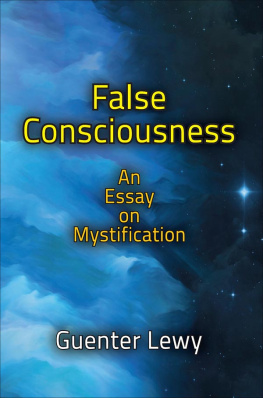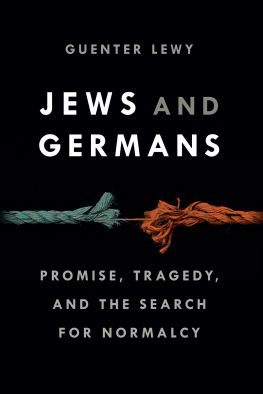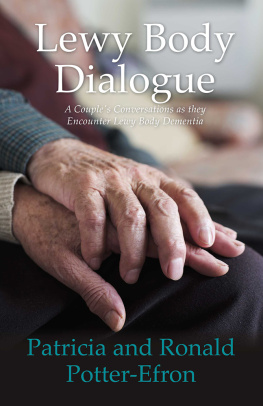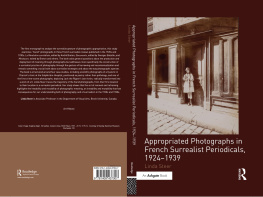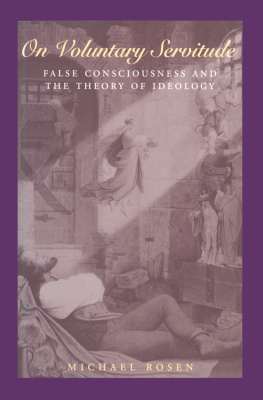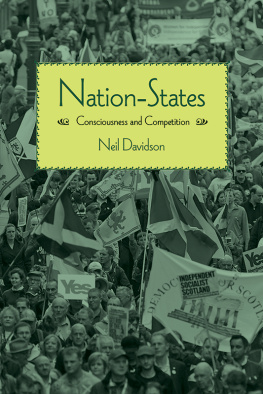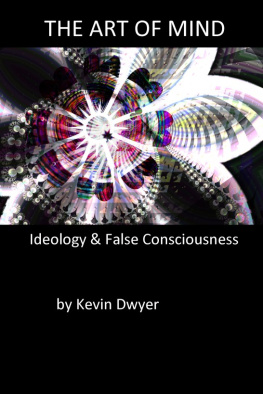The idea of writing this book developed during the late 1960s and early 1970s when a large number of graduate students I taught became taken by the Marxian notion of false consciousness the idea that people under capitalism lead a manipulated existence and do not know their own best interests. Influenced by Herbert Marcuse and other theorists of the New Left, these students often used the concept of false consciousness as a glib and convenient label for popular opinion that did not follow leftist prescriptions. Despite the popularity of the idea of false consciousness, most of these young people knew little about its origin or about its use in communist countries or about socialization in Western societies, which they condemned for fostering mystification. I therefore decided that an examination of these issues might be useful.
Today one hears less about false consciousness, though the question whether, or to what extent, people can be regarded as the best judges of their own interests remains, of course, a central concern of political philosophy. On the other hand, the events of 198081 in Poland have once again reminded the world that the Marxian dictum Being Determines Consciousness does not hold even in the so-called socialist countries where Marxism is the reigning ideology. As earlier in Hungary and Czechoslovakia, the Polish workers, too, did not regard the communist state as the guardian of their true interests and they organized massive strikes against it. Strikes, according to communist teachings, are a consequence of the class struggle under capitalism. When they occurred in a supposedly socialist society they were dismissed by Russian propaganda as a result of agitation by the enemies of socialism and as a reappearance of false consciousness. Once again, then, this venerable concept had to serve as an alibi for the failure of Marxian theory and practice.
This is a short book that deals with a subject of numerous and very wide ramifications. Each of the eight chapters of this book could easily have been expanded into a full-scale study in its own right. In the interest of a compact presentation and in order to focus on the central issue of interest to me, I have severely limited my discussion of matters only indirectly related to the main subject; because of this limitation of scope I have called this book an essay. I am interested here neither in providing a definitive history of the idea of false consciousness nor in analyzing in detail all the many complex philosophical issues raised by this concept. For example, throughout the essay I have accepted, without offering full supporting arguments, the meta-ethical position of noncognitivism; i.e., that moral principles do not have cognitive status, cannot be said to be either true or false, and that there therefore is no such thing as moral truth. My main aim has been to apply what German scholars call Ideologiekritik to the Marxian concept of ideology or false consciousness itself, to demystify the concept of mystification.
The argument of this essay proceeds as follows: In , I undertake a more thorough theoretical analysis of the concept of false consciousness and of its implications for our contemporary democratic society.
Chapter 4 of this book was published in a slightly different form as an article, The Persisting Heritage of the 1960s in West German Higher Education, in Minerva (London), vol. XVIII, no. 1 (Spring 1980), and is reprinted here with permission of the editor of Minerva. Field research in Germany for this chapter was made possible by a grant from the Earhart Foundation for which I express my gratitude.
I also want to thank my colleagues and friends Brigitte and Peter L. Berger, William E. Connolly, Paul Hollander, Christopher J. Hurn, and Stanley Rothman for their critical reading of the manuscript. The responsibility for whatever shortcomings remain is mine.
Northampton, MA.
September 1, 1981

